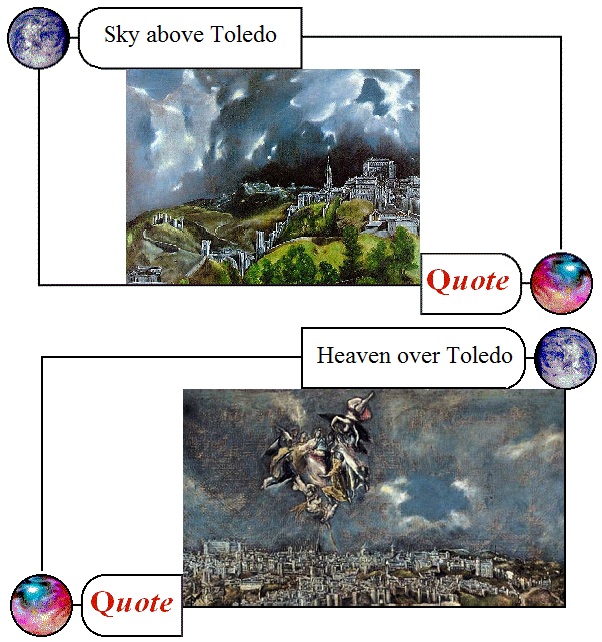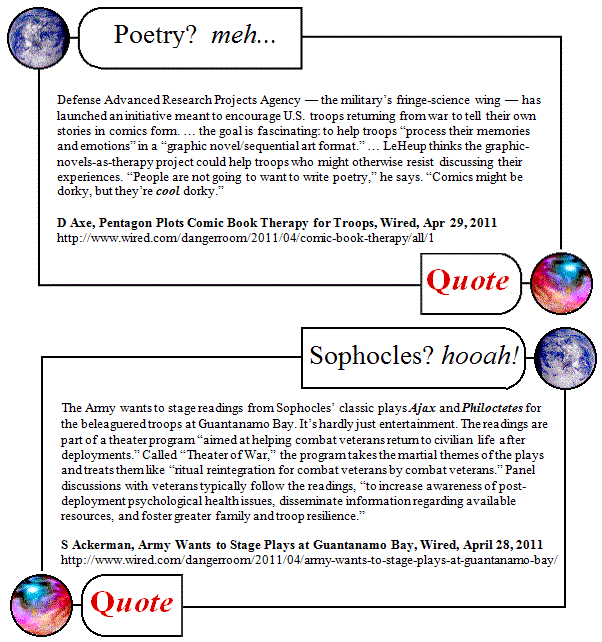I left the following comment at zenpundit :
Kabir says,
“I don’t touch ink or paper
This hand never grasped a pen
The greatness of four ages
Kabir tells with his mouth alone”
Tom Tom Club (Wordy Rappinghood) says,
“Words in paper, words in books
Words on TV, words for crooks
Words of comfort, words of peace
Words to make the fighting cease”
And Asia Times writes,
The channel broadcasts in Pashto language from 12 pm to 3 pm in the afternoon and 6 pm to 8 pm in the evening. The programs include jihadi taranay (jihadi motivational songs….
And drones the size of bees, some day
And mobiles crossing the Kush; they play
Tribal songs for jihadi alms, a call-to-arms
On 11/11 our cell phones say:
And Americans can talk endlessly about the importance of democracy, but they never thought to explain to the chiefs why they came back to Afghanistan. They arrived with suitcases full of cash to buy help but they never told the chiefs that they were there because the way al Qaeda attacked the US on 9/11 meant that many Americans couldn’t find so much as a fingernail of their massacred relatives to bury because the bodies were ground to dust.
.
Not to be able to bury one’s dead or even a piece of one’s dead — knowing THAT would have meant a great deal to the chiefs and those in their tribes. But the Americans never explained, never even cried, never showed emotion. THEY NEVER ACTED HUMAN; they never interacted with the Afghans in ways that are the same for all — not only all humans but all mammalian creatures. In other words, they displayed not a whit of common sense.
.
What do you talk about when you first sit down with a man whose life has been circumscribed by war and who knows nothing about you and your tribe? The answer is you tell me of your battles, I’ll tell you of mine and in this way we establish a commonality of experience.
.
You transform the rug or patch of sand you’re sitting on into the terrain of the battle, and you use sticks and stones or teacups as place markers for the troops to show how the battle was fought. In this way, you demonstrate that the battle is truly in your heart, that it means enough to you that you can bring it alive for another.
.
If you don’t show what’s in your heart, then you haven’t established a basis for developing a mutual understanding, so then there is no way to move off the dime. Only when you’ve demonstrated by your stories of war that your tribe also shed much blood for independence, can you move on to explaining stuff about government. You can explain that you were losing too many of your sons in battle so you devised a type of government that would help defend your freedoms and with less bloodshed. And so on.
– Pundita, “Americans, who are you?
Contra Pundita, I bet this has been done sporadically between some who are working together as NATO attempts to build an Afghan Army – one able to protect its borders and serve as an irritant to transnational groups in the region. Many stories have yet to be told….


